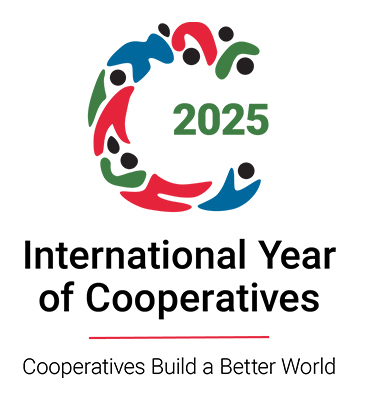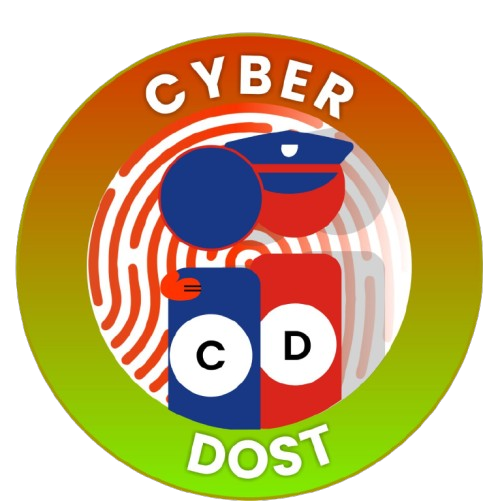A. Statutory Provision
Q.: Is registration of births and deaths compulsory?
Ans.: Registration of Births & Deaths is compulsory as per provisions of Registration of Births & Deaths Act, 1969 and Delhi Registration of Births & Deaths Rules, 1999.
B. Benefits of Registration
Q.: What are the benefits/advantages of birth & death certificates?
Ans.: a) Main advantages of registration of birth are:
i) Admission to schools
ii) Right to vote
iii) Obtaining Driving License, Passport etc.
iv) For employment
v) For obtaining Visa for Foreign visits
vi) Claiming right to marry after attaining marriageable age.
b) Advantage of registration of Death:
i) To establish the fact of death for relieving the individual from social, legal and official obligations.
ii)To establish the claim on property, insurance and social security benefits etc.
C. Persons/Agencies Responsible for Reporting of Birth/Death to The Registration Agency
Q. How Birth & Death is registered in Delhi?
Ans.: If birth and death has taken place in Government hospitals/private hospitals/nursing homes/ medical institutions, such births/deaths are to be reported by the head of the institutions within 21 days of births & deaths to the concerned Registrars (births & deaths).
If birth and death has taken place at home, it is the responsible of the Head of the family/any other family member to report such births and deaths within 21 days to the Sub Registrars (births & deaths).
D. Time Frame for Reporting of Events for Registration
All births/deaths that have occurred either in a home or hospital or otherwise shall be reported within 21 days of their occurrence to the concerned Registrar/Sub Registrar in whose jurisdiction the event has occurred.
E. Place of Registration
Q.: Whether Registration of births & deaths can be done at any place irrespective of the place of occurrence? Whether an event which has taken place say at Bombay can be registered in Delhi?
Ans.: Birth/Death can be registered at the place of occurrence only. An event, which has taken place in Bombay shall be registered with the concerned local Registrar in Bombay within whose jurisdiction the event has occurred. That event can not be registered in Delhi.
Q.: Whether the event of death occurred in a road accident at Hyderabad could be registered in the area of residence of the deceased in Goa on the ground that the dead body was cremated there?
Ans.: As per provisions of Section 7(2) of the Registration of Births & Deaths Act, 1969 the event of births/deaths can be registered only at the place of occurrence. The event which had taken place in Hyderabad should be registered with the concerned Registrar in whose jurisdiction the event has occurred. As such the event of death under reference could not be registered in Goa. In such cases, it is expected that the event of death might have been reported to the Registrar of births & deaths of the area where the death has occurred by the Police officer incharge of Thana under Section 8(1) (e) of the RBD Act, 1969.
F. Obtaining of Birth/Death Certificate
Q.: How birth/death certificate can be obtained ?
Ans.: Birth or death certificate can be obtained after the registration by submitting an application on plain paper to the concerned area Registrar/Sub-Registrar giving following details:
i) Date of Birth/Death
ii) Sex i.e. Male or Female
iii) Place of Birth/Death
a) Name of hospital/nursing home/medical institutions
b) Residential address in case of domicialry birth/death
iv) Father's Name
v) Mother's Name
Q.: Whether Office of Chief Registrar of Births & Deaths issues birth or death certificate?
Ans.: The Office of Chief Registrar (B&D) does not issue any birth & death certificate but issue certified copy of English translated birth & death certificates.
G. Delayed Registration
Q.: What is late registration?
Ans.: Reporting of birth/death for registration after 21 days of occurrence comes under the category of late registration.
Q.: How birth and death is registered after 21 days but within 30 days of its occurrence?
Ans.: Birth & Death reported after 21 days but within 30 days of its occurrence can be registered on payment of Rs.2/- as late fee.
Q.: How birth and death is registered after one month but within one year of occurrence of the event?
Ans.: Birth & Death reported after one month but within one year of its occurrence can be registered only with the written permission of the Registrar on payment of Rs.5/-
Q.: How birth and death is registered after one year of the occurrence of event?
Ans.: Birth & Death reported after one year of its occurrence can be registered on an order made by the area Magistrate i.e. SDM or the first class Magistrate or a Presidency Magistrate and on payment of Rs.10/- as late fee.
H. Translation of Birth and Death Certificates
Q.: How can I get certified copy of English Translation of Birth or Death Certificates?
Ans.: Certified copy of English Translation of Birth or Death Certificates can be obtained from the office of Chief Registrar (Births & Deaths) on submission of original certificate issued in other languages.
I. Entering of Name in Birth Certificate
Q How name of the child can be added in the birth certificate?
Ans.: Name of the child can be entered in the Birth Record free of cost within one year occurrence of births either orally or in writing. After one year, but within a period of 15 years (w.e.f. 1.1.2000 as per provisions of DRBD Rules 1999), name can be got entered on payment of Rs.5/- as late fee.
J. Change of Name
Q.: Whether the correction or cancellation of entries in births/deaths register (under section 15 of the Act) also covers change of name? Whether Registrar is competent to effect correction involving change of name in respect of birth/death occurred and registered prior to enforcement of the 1969 Act?
Ans.: The question of change of name may be viewed from two angles. The first is that there may be some clerical error in writing the name in the register. For example, Ram might have been written by oversight as Ram Lal or the word `Chandra' might have been written as `Chander'. The correction of the name under such circumstances may be covered under section 15 of the Act. Similarly, the name might have been fraudulently or improperly entered in the register. This would also fall under section 15. The second aspect would cover such cases where a person changes his name and thereafter makes a request for the change of the name in the register also. Such a contingency is obviously not covered under section 15 of the Act.
The name is one of the various entries prescribed in the register. So the change of name would be in fact, a correction of the entry relating to the name. Every case in regard to the request for changes of name should, therefore, be considered in the light of the aforesaid observations.
Q.: Whether the changes made in the name of father/mother through Gazette notification or otherwise subsequent to the date of registration of birth of the child, could be incorporated in the birth register?
Ans.: As such changes in the name are not covered under Section 15 o the Act, these need not be incorporated in the birth register.
K. Birth Occurred Abroad
Q.: Whether births which occurred to Indian citizen abroad prior to 1.1.1971 and not registered with the Indian Consulate as required under section 20(1) of the Act, can be registered now under section 20(2) of the Act? If such births can be registered, whether section 13 continues to be applicable for cases when registration is sought beyond 60 days of arrival in India?
Ans.: The answer is in affirmative for both the queries.
L. Adoption : Registration and Issue of Birth Certificate
The RBD Act, 1969 is silent on this aspect. However, the salient feature of guidelines issued by Government of India are briefed below:
Guidelines to orphanages, child welfare agencies etc.
i) An application is to be made by the agency to the local Magistrate along with any other relevant material in form of an affidavit made by responsible person belonging to the agency.
ii) The Magistrate is to pass an order approving the particulars to be entered in the birth certificate and same is to be issued by the registrar of the area where the child was found.
iii) The Chief Medical Officer of the district is to be involved in ascertaining the age and the Magistrate would ordinarily act on the certificate granted by him.
iv) Normally, the process should be initiated before the adoption is finalized, so that the particulars of adoptive parents are available for inclusion in the certificate.
v) If the child has attained three years of age and adoption has not been finalized, the agency is to obtain a birth certificate, if found necessary, after informing the court in the form of an affidavit giving the following details:
(a) that to the best of its knowledge the child has attained the age of three years.
(b) That his/her adoption has not been finalized and is likely to take some time or may never be finalized in all probability;
(c) That a certificate is required for educational/medical/legal purposes or any other reasonable purpose which may be specified; and
(d) That person/persons would stand in as local parents to the child (this person/these persons should be a responsible person/responsible persons belonging to the placement agency) till such time as he/she attains majority, or is adopted, whichever is earlier.
Issue of Second Birth Certificate on Adoption (Institutional)
A second birth certificate is to be issued after adoption to provide for a change in name/names of the child and the adoptive parent/parents after obtaining an order to that effect from the court, which had passed order for issuing the original birth certificate.
Issue of Birth Certificate on Adoption (Non- Institutional)
A large number of adoptions do take place outside these institutional arrangements, for example children taken on adoption from relatives for friends. In such cases, it would be sufficient if the Magistrate having jurisdiction over the area passes an order approving the particulars of the adoptive parents to be entered/altered in the birth register/certificate and also pass an order for issuing a second birth certificate. If in case, the birth has not been registered till the time of adoption the Magistrate passing the order has to determine the exact date of birth, which he can do on the basis of relevant proof or declaration from the natural parents and in their absence, on the basis of the certificate granted by the Chief Medical Officer.
The Registrar, as he does in case of other court order, has to make an entry in the `remarks' column giving details of the court order (including date) while entering or correcting as per the particulars approved by the Magistrate.
M. Case of Missing Persons and Registration of Death
The RBD Act and Rules are silent on the question of determination of date and place of death of a missing person, therefore the date determined by the Court in a declaratory suit, as may be filed for this purpose can be relied upon.
N. Penalties
As prescribed in Section 23 of the R.B.D. Act, 1969.
O. Details of Jurisdiction, Address and Name of Officers and Officials of Registration in Death
Refer Officers directory in the website of this Directorate.


 Directorate of Economics & Statistics and Office of Chief Registrar (Births & Deaths)
Directorate of Economics & Statistics and Office of Chief Registrar (Births & Deaths) 


